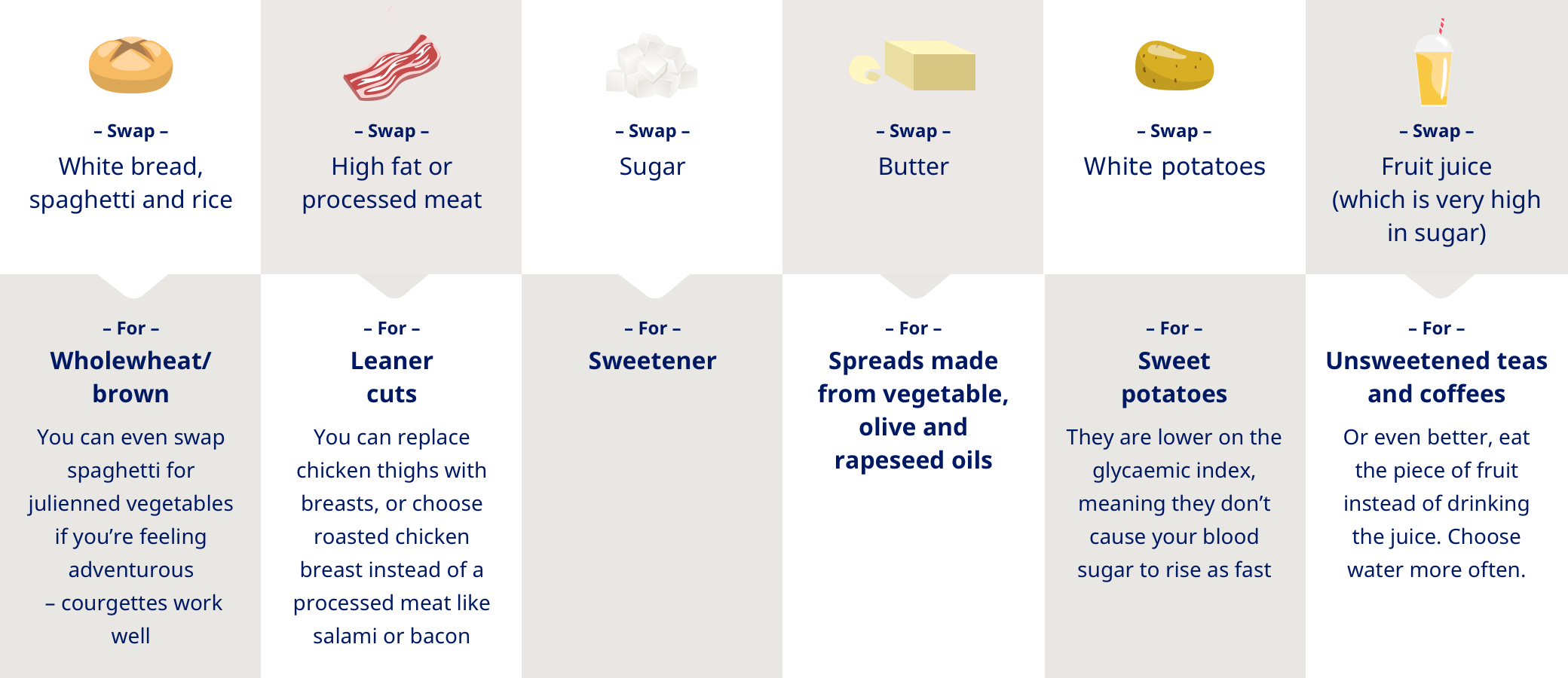
How to manage diabetes with diet
Eating healthy is important for everyone, but it's even more important for people living with type 2 diabetes.
Meet Phyllisa who shares tips to manage diabetes with the right diet
Eating healthy when you have diabetes can be difficult, especially when it seems easier just to choose something convenient or to have what everyone else is having. But eating well means learning to make healthy choices for you – regardless of where you are or who you are with.
A nutritious menu doesn't have to cost more, be boring or take longer to prepare. Your diabetes care team can help you create a healthy meal plan that fits your daily routines.
Diet changes do not necessarily have to mean saying goodbye to all your favourite foods, and small changes can make a big difference to your diet. For instance, you can change the way food is prepared. Here are six simple food swaps that can make your meal instantly healthier.

Another part of making healthier food choices is being aware of the carbohydrates in food. It is essential to read the labels on foods, so you know their carbohydrate content. Glucose is a carbohydrate, so the amount and type of carbohydrate you consume may affect your blood sugar levels and the dosage of insulin you need if you are on insulin treatment3.
Keeping track of your carbohydrate intake – also known as 'counting carbs' – can be complicated, but many tools, apps, and online references are available to help you get started.
In addition to your food choices, you should also be mindful of your alcohol consumption.
People with type 2 diabetes can still enjoy alcohol but be aware that it can have unpredictable effects on your blood sugar levels6. The sugar in alcoholic drinks causes a sharp rise in blood sugar7. At the same time, when combined with diabetes medications, alcohol can also cause hypoglycaemia or low blood sugar6.
A sensible rule is to always drink in moderation and never on an empty stomach6.
SG25DI00047
